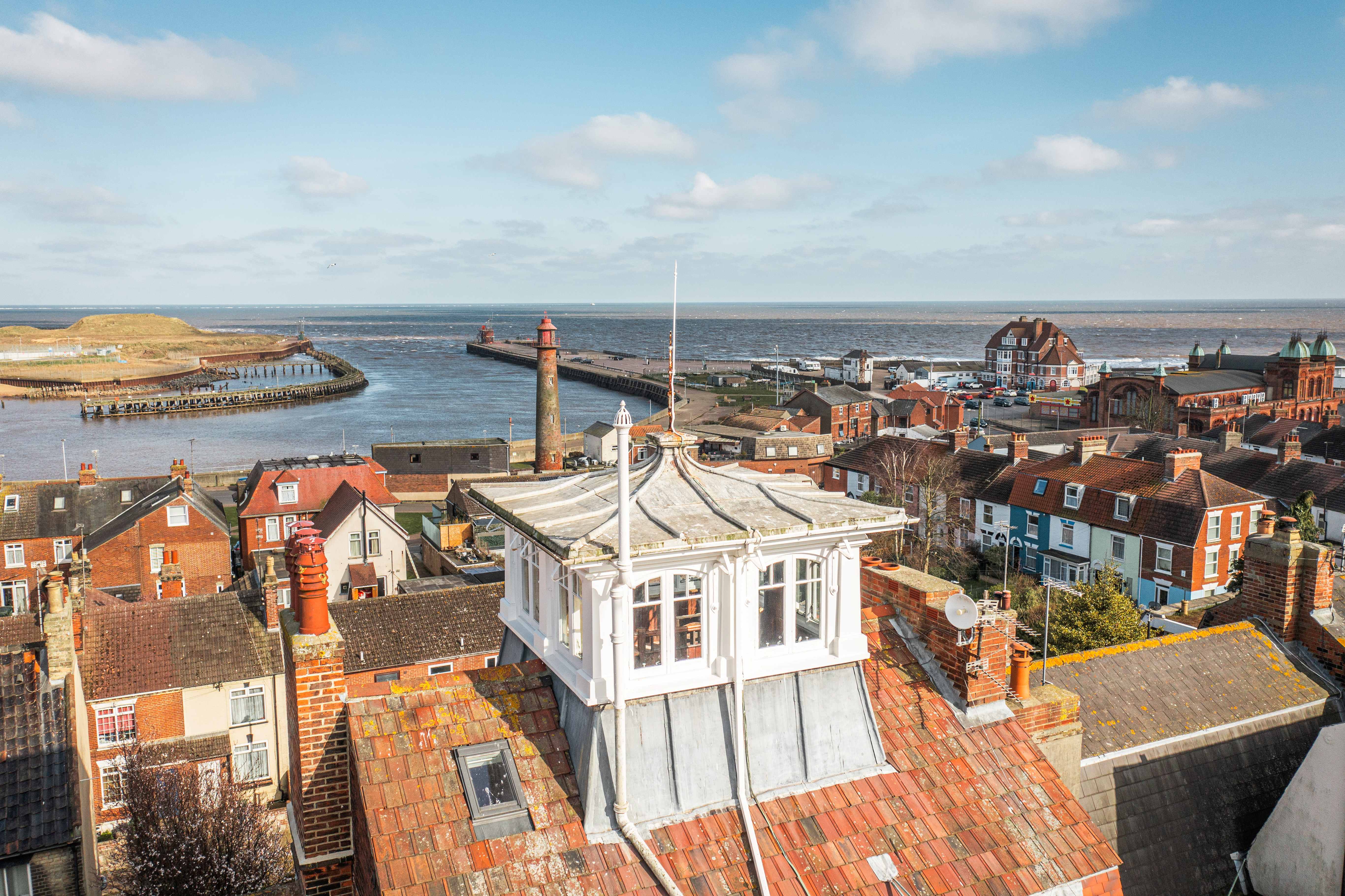Going up? The property market's top experts on what will happen to house prices in 2025
After a jam-packed year, could a brighter and more stable housing market be around the corner? Here’s our round-up of house price predictions from those in the know.


Does it go without saying that nobody really knows for sure? After all, the swings of politics, finance and society have been ever more violent in the past eight or nine years.
That said, the biggest property companies in Britain — from the elite estate agents and the biggest lenders to the property portals — spend vast amounts of time, effort and money trying provide a best-guess which they then share. And we've brought together all the expert opinions in one place.
Savills
- UK mainstream: 4%
- London mainstream: 3%
- Prime central London: -4%
- Outer prime London: 0%
- Prime regional markets: 2%
‘In a normal housing market recovery, you would expect the top-end of the market to recover first, responding quickest to a change in sentiment,’ says Lucian Cook, head of residential research, setting the scene.
‘However, the additional stamp duty surcharge for second homes, changes in ‘non-doms’ taxation and VAT on school fees are likely to offset some of the impacts of future cuts in interest rates this time around.’
In prime central London, Savills anticipates ‘a further modest fall in prices next year, as the market finds its level in a changed fiscal and regulatory environment’.
It forecasts stronger house price growth in the domestic prime London markets, where there are more needs-based buyers likely to be motivated by a decline in mortgage costs.
Meanwhile the outlook is ‘somewhat brighter’ in the prime areas outside London, which are set to benefit from ‘some displaced demand as families look to strike a balance between house prices, commutability, and access to schooling’.
Sign up for the Country Life Newsletter
Exquisite houses, the beauty of Nature, and how to get the most from your life, straight to your inbox.
Savills’s forecast for mainstream UK house prices is up from 3.5% previously.
Knight Frank
- UK: 2.5%
- Greater London: 2%
- Prime central London: 2%
- Prime outer London: 2.5%
- Prime regional markets: 2%
Knight Frank says prime outer London and prime regional markets will be ‘supported by higher levels of equity than mainstream markets as well as the presence of more needs-driven buyers’ in 2025.
Meanwhile it expects prime central London to be shaped in the short-term by tax changes.
The firm has lowered its forecast for average UK house price growth from 3% in August because of the ‘more adverse rate environment’.
Its prediction for Greater London has also edged down as ‘affordability pressures will continue to be felt more acutely in the capital than other regions of the country’.
Knight Frank adds that ‘revising our UK forecasts before assessing the full impact of the Budget is challenging’.
Tom Bill, Head of UK Residential Research, says: ‘In simple terms, we don’t yet know if the Budget will work and therefore by how much rates could fluctuate in the years ahead’.

Hamptons
- Great Britain: 3%
- London: 4%
Hamptons expects prices in every region to have recovered to their 2022 pre-mini Budget peaks by the end of 2025.
‘Fierce’ competition among lenders are likely to cut borrowing costs for borrowers seeking higher loan-to-value mortgages and niche products. But mortgage rates for buyers with more equity are unlikely to fall much more, it says. The stamp duty rise in April and a weak economic backdrop are also tipped to ‘temper price growth’.
Hamptons expects 2025 to mark the start of a new housing cycle, with house price growth in London outpacing other regions for the first time since 2015. Areas outside prime central London are set to see the strongest growth.
Its house price growth forecast for the year ahead remains unchanged.
Aneisha Beveridge, Head of Research, explains: ‘Even though an improving affordability picture, driven by lower mortgage rates and robust pay rises, looks likely to fuel price increases and transactions in 2025, higher rates for longer will weigh on long-term growth.’
Strutt & Parker
- Mainstream UK: up to 5%
- Prime central London: up to 5%
Strutt & Parker predicts a ‘strong’ start to 2025 as buyers try to complete sales before the end of the stamp duty holiday. It also expects affordability pressures to ease throughout the year, with mortgage rates ‘likely to follow a downward trend’.
Guy Robinson, Head of Residential Agency, explains: ‘This will all help to release pent-up demand, particularly amongst buyers and sellers who have been waiting for mortgage rates to fall before making their move.’
He adds: ‘Once activity takes off, this figure [mainstream house price forecast] could look conservative.’
Strutt & Parker says that prime central London is likely to be ‘resilient’ to tax changes, such as the abolition of the non-dom regime.
‘While some buyers may think twice about these changes, many will simply factor them in as the price you pay for a home in one of the world’s most desirable cities’, says Robinson.
Jackson-Stops
- UK: up to 4%
More than a third (38%) of Jackson-Stops agents expect house prices to hold in 2025, while a further third (31%) predict they will rise between 2% and 4%.
Chairman Nick Leeming describes the outlook as ‘quietly optimistic with demand moving in the right direction following a cautious 2024’.
‘With the political landscape looking more settled and the shockwaves from the October budget subsiding, we have every reason to expect a more balanced market in 2025,’ says Leeming.
‘This newfound equilibrium will be beneficial for both buyers and sellers, fostering an environment where transactions can proceed with greater confidence and predictability.’
The firm expects ‘significant activity’ in the prime market, boosted by increased buyer confidence and a more stable economic outlook.
Chestertons
- UK: 3.4%
- London: 3%
Chestertons says that house price rises in 2025 are likely to be supported by ‘lower mortgage costs, modest but consistent growth for the UK economy and inflation staying around the Bank of England’s 2% target’.
It adds that while ‘rapid’ price increases are unlikely, better affordability, pent-up demand and renewed confidence should pave the way for steady house price growth over the next two years.

Rightmove
- National average asking price: 4%
Rightmove says that while the price growth forecast is its largest since 2021, it is in line with the long-term average.
It anticipates London price growth to be level, if not marginally ahead, of national price increases.
The property portal predicts that 2025 could ‘be the beginning of the price turning point for the London market, with the fundamental pull of the capital for both workers and international buyers predicted to start to reassert itself’.
Rightmove’s property expert, Tim Bannister, expects a busier year in 2025, with around 1.15 million transactions.
He explains: ‘The effects of stamp duty rising will be felt for the rest of the year too, and we may see some negotiation tactics play out, particularly on properties close to the £300,000 mark, as both buyers and sellers try to mitigate their higher costs through the price agreed.’
Zoopla
- UK: 2.5%
Zoopla expects current sales momentum to continue next year, with transactions likely to rise from 1.1m in 2024 to 1.15m in 2025. This will be fuelled by improving affordability and income growth.
First-time buyers are set to remain the largest group of buyers in 2025 and this in turn will unlock moves for existing homeowners.
Nationwide
- UK: 2-4%
Nationwide says that the expiry of the stamp duty holiday will prompt a jump in sales in the first three months of the year, especially in March, and a corresponding period of weakness in the following three to six months.
It adds that ‘the underlying pace of housing market activity is likely to continue to strengthen gradually as affordability constraints ease through a combination of modestly lower interest rates and earnings outpacing house price growth’.
Halifax
- UK: up to 3%
Halifax reckons that while interest rate cuts are still on the cards for 2025, ‘the pace looks likely to be more gradual than previously anticipated’.
Amanda Bryden, Head of Halifax Mortgages, adds: ‘But with employment conditions remaining positive, buyer demand should continue to hold up well.’
It expects ‘modest’ house price growth in the year ahead along with a further small increase in the number of sales.

Credit: Getty
The Stamp Duty surprise, inheritance tax on farms and more: A breakdown of the Autumn Budget
Chancellor Rachel Reeves may have decided against a Capital Gains Tax increase on homes — but she lined up a
-
 'To exist in this world relies on the hands of others': Roger Powell and modern British bookbinding
'To exist in this world relies on the hands of others': Roger Powell and modern British bookbindingAn exhibition on the legendary bookbinder Roger Powell reveals not only his great skill, but serves to reconnect us with the joy, power and importance of real craftsmanship.
By Hussein Kesvani Published
-
 Spam: The tinned meaty treat that brought a taste of the ‘hot-dog life of Hollywood’ to war-weary Britain
Spam: The tinned meaty treat that brought a taste of the ‘hot-dog life of Hollywood’ to war-weary BritainCourtesy of our ‘special relationship’ with the US, Spam was a culinary phenomenon, says Mary Greene. So much so that in 1944, London’s Simpson’s, renowned for its roast beef, was offering creamed Spam casserole instead.
By Country Life Last updated
-
 A mini estate in Kent that's so lovely it once featured in Simon Schama's 'History of Britain'
A mini estate in Kent that's so lovely it once featured in Simon Schama's 'History of Britain'The Paper Mill estate is a picture-postcard in the Garden of England.
By Penny Churchill Published
-
 Hidden excellence in a £7.5 million north London home
Hidden excellence in a £7.5 million north London homeBehind the traditional façades of Provost Road, you will find something very special.
By James Fisher Published
-
 Sip tea and laugh at your neighbours in this seaside Norfolk home with a watchtower
Sip tea and laugh at your neighbours in this seaside Norfolk home with a watchtowerOn Cliff Hill in Gorleston, one home is taller than all the others. It could be yours.
By James Fisher Published
-
 A Grecian masterpiece that might be one of the nation's finest homes comes up for sale in Kent
A Grecian masterpiece that might be one of the nation's finest homes comes up for sale in KentGrade I-listed Holwood House sits in 40 acres of private parkland just 15 miles from central London. It is spectacular.
By Penny Churchill Published
-
 Some of the finest landscapes in the North of England with a 12-bedroom home attached
Some of the finest landscapes in the North of England with a 12-bedroom home attachedUpper House in Derbyshire shows why the Kinder landscape was worth fighting for.
By James Fisher Published
-
 Could Gruber's Antiques from Paddington 2 be your new Notting Hill home?
Could Gruber's Antiques from Paddington 2 be your new Notting Hill home?It was the home of Mr Gruber and his antiques in the film, but in the real world, Alice's Antiques could be yours.
By James Fisher Published
-
 What should 1.5 million new homes look like?
What should 1.5 million new homes look like?The King's recent visit to Nansledan with the Prime Minister gives us a clue as to Labour's plans, but what are the benefits of traditional architecture? And can they solve a housing crisis?
By Lucy Denton Published
-
 Welcome to the modern party barn, where disco balls are 'non-negotiable'
Welcome to the modern party barn, where disco balls are 'non-negotiable'A party barn is the ultimate good-time utopia, devoid of the toil of a home gym or the practicalities of a home office. Modern efforts are a world away from the draughty, hay-bales-and-a-hi-fi set-up of yesteryear.
By Madeleine Silver Published
